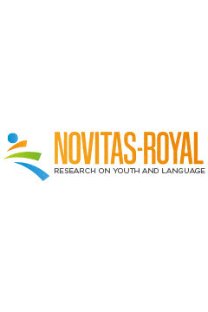Can Local Coursebooks in Turkey be an Alternative to their Global Counterparts for the Teaching of Speaking?
Türkiye’deki Yerel Ders Kitapları Konuşma Becerisinin Öğretilmesinde Küresel Emsallerine Bir Alternatif Olabilir Mi?
___
Appel, J. (2011). Moments of practice: teachers’ knowledge and interaction in the language classroom. In J. I. Huttner, B. Mehlmauer-Larcher, S. Reichl, & B. Schiftner (Eds.), Theory and practice in EFL teacher education: bridging the gap (pp. 38–54). Bristol: Multilingual Matters.Asik, A. (2017). A sample corpus integration in language teacher education through coursebook evaluation. Journal of Language and Linguistic Studies, 13(2), 728–740.
Bayezit, H., & Cubukcu, F. (2015). The use of learning strategies in English and Turkish as a foreign language coursebooks. Abant İzzet Baysal Üniversitesi Eğitim Fakültesi Dergisi, 15(1), 25–47.
Bulut, E., Ertopcu, F. B., Ozadali, S. U., & Senturk, S. (2018). Teenwise student’s book. Ankara: MEB.
Cakir, I. (2010). The frequency of culture-specific elements in the ELT coursebooks at elementary schools in Turkey. Novitas-ROYAL, 4(2), 182–189.
Cook, V. J. (2016). Premises of multi-competence. In V. J. Cook, & L. Wei (Eds.), The Cambridge handbook of linguistic multi-competence (pp. 1–25). Cambridge: Cambridge University Press.
Cunningsworth, A. (1995). Choosing your coursebook. Oxford: Macmillan.
Garton, S., & Graves, K. (2014). Materials in ELT: current issues. In S. Garton, & K. Graves (Eds.), International perspectives on materials in ELT (pp. 1–15). New York: Palgrave Macmillan.
Gray, J. (2002). The global coursebook in English language teaching. In D. Block, & D. Cameron (Eds.), Globalization and language teaching (pp. 151–167). London: Routledge.
Gumusok, F. (2013). A quest for literature in ELT coursebooks. Journal of History Culture and Art Research, 2(2), 114–133.
Gungor, M. N., Akcan, S., Werbinska, D., & Ekiert, M. (2019). The early years of teaching: A cross-cultural study of Turkish and Polish novice English teachers. Eurasian Journal of Applied Linguistics, 5(2), 287–302.
Harwood, N. (2014). Content, consumption, and production: three levels of textbook research. In N. Harwood (Ed.), English language teaching textbooks (pp. 1–41). New York: Palgrave Macmillan.
Hughes, S. H. (2019). Coursebooks: Is there more than meets the eye? ELT Journal, 73(4), 447–455.
Hutchinson, T., & Torres, E. (1994). The textbook as agents of change. ELT Journal, 48(4), 315–328. Isik, A. (2011). Language education and ELT materials in Turkey from the patch dependence perspective. Hacettepe University Journal of Education, 40, 256–266.
Jaime Osorio, M. F., & Insuasty, E. A. (2015). Analysis of the teaching practices at a Colombian foreign language institute and their effects on students’ communicative competence. HOW, 22(1), 45–64.
Jordan, G., & Gray, H. (2019). We need to talk about coursebooks. ELT Journal, 73(4), 438–446.
Kennedy, C., Ward, C., & Ting, T. (2018). Talent 1 student’s book. Cambridge: Cambridge University Press.
Kesen, A. (2010). Turkish EFL learners’ metaphors with respect to English language coursebooks. Novitas-ROYAL, 4(1), 108–118.
Khan, O., & Can Daskin, N. (2014). ‘You reap what you sow’: Idioms in materials designed by EFL teacher-trainees. Novitas-ROYAL, 8(2), 97-118.
Khan, O., & Tas, T. (2019a). A coursebook analysis: Classifying speaking activities for beginner levels. Paper presented at GlobELT 2019 Conference, Kyrenia, N. Cyprus.
Khan, O., & Tas, T. (2019b). Investigating classroom interaction patterns: A text-based analysis. In B. Tuncsiper, & S. Tok (Eds.), Proceedings of 1st International Educational Research Conference (ICER) (pp. 60–70). Izmir: Izmir Democracy University.
Long, M. (2015). Second language acquisition and task-based language teaching. Oxford: Wiley Blackwell.
Lopez-Barrios, M., & Villanueva de Debat, E. (2014). Global vs. local: does it matter? In S. Garton, & K. Graves (Eds.), International perspectives on materials in ELT (pp. 37–52). New York: Palgrave Macmillan.
Meddings, L., & Thornbury, S. (2009). Teaching unplugged: Dogme in English language teaching. Guildford: Delta Publishing.
Miles, M. B., & Huberman, A. M. (1994). Qualitative data analysis (2nd Ed.). London: Sage Publications.
Richards, J. C. (2001). Curriculum development in language teaching. Cambridge: Cambridge University Press.
Savignon, S. J. (2002). Communicative language teaching: linguistic theory and classroom practice. In S. J. Savignon (Ed.), Interpreting communicative language teaching (pp. 1–27). New Haven: Yale University Press.
Simsek, M. R. (2017). Confronting culture in local and global English coursebooks: Student teachers’ preferences in materials adaptation. Journal of Theory and Practice in Education, 13(2), 277–300.
Tekir, S., & Arikan, A. (2007). An analysis of English language teaching coursebooks by Turkish writers: ‘Let’s Speak English 7’ example. International Journal of Human Sciences, 4(2), 1–18.
Tomlinson, B. (2012) Materials development for language learning and teaching. Language Teaching, 45(2), 143–179.
Tomlinson, B. (Ed.) (2003). Developing materials for language teaching. New York: Continuum.
Tomlinson, B. (Ed.) (2011). Materials development in language teaching (2nd Ed.). Cambridge: Cambridge University Press.
Tosun, O. O., & Cinkara, E. (2019). Coursebook dependency in secondary and tertiary-level EFL teachers. HOW, 26(1), 81–105.
Turkish Ministry of National Education & Board of Education and Discipline (2013). Taslak ders kitaplarınınn incelenmesinde değerlendirmeye esas olacak kriterler. 96732399/116.03/27040. Retrieved from http://e-mufredat.meb.gov.tr/Dokumanlar/14062748_incelemekriterleri_14012013.pdf
Yildirim, A. (2012). Literature and English culture in ELT. Novitas-ROYAL, 6(2), 137–153.
Zorba, M. G., & Cakir, A. (2019). A case study on intercultural awareness of lower secondary school students in Turkey. Notivas-ROYAL, 13(1), 62–83.
- ISSN: 1307-4733
- Yayın Aralığı: 2
- Başlangıç: 2007
- Yayıncı: -
ELF in the Context of Iran: Examining Iranian In-service Teachers' Attitudes
Aday İngilizce Öğretmenlerinin Düşük Seviye Konuşma Yeterliği ve Geliştirilmesi için Öneriler
Aslı Lidice GÖKTÜRK SAĞLAM, Ayla YALÇIN DUMAN
Pre-Service EFL Teachers’ Low-Level of Oral Proficiency and Suggestions for Enhancing It
İngilizce Öğretmen Adayları Arasında Algılanan Sosyal Öz Yeterlik ve Dil Kaygısı: Türkiye Örneği
